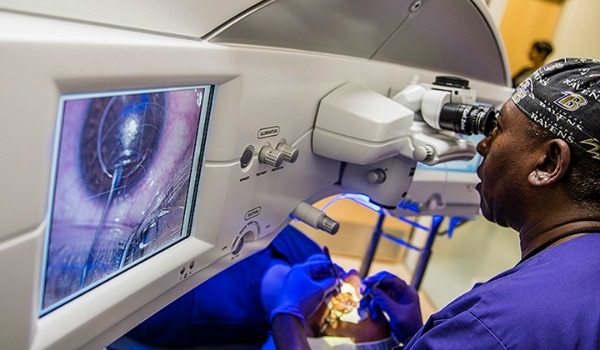Last updated on June 20, 2020
Pain after eye surgery is one of the most common side effects that some patients suffered from. Although the advanced tools and use of minimally invasive surgical procedures have reduced the complications and post-treatment pain, it cannot be completely ruled out.
The fear of pain is one of the major reasons why many eye patients want to stick to the medications and eye drops instead of doing a surgical treatment. Both cataract surgery and LASIK treatments are known to have caused some levels of discomfort and pain in patients depending upon the eye conditions.
But when it comes to acute pain problems after eye surgeries, one must understand the types of pain and the reasons behind them.
Intraoperative Pain
The first most important part of eye surgery is to get it done by an experienced and knowledgeable eye surgeon. Always make sure you find the best eye surgeon in India for your treatment.
An expert ophthalmologist always takes care of all the possibilities that may cause intraoperative pain and plans accordingly to reduce it. It is a doctor’s responsibility to execute the operation in the right manner so that the patient experiences a smooth surgical treatment.
One of the most known problems is the one caused by ocular anesthesia. But there are different ways to manage and control pain occurring during the operation.
Postoperative Pain
The pain occurring after the surgery depends upon many factors. This type of pain occurs as each different eye has its unique nerve endings that respond differently after the surgery. Postoperative pain varies depending upon the type of surgery one undergoes. Experiencing acute pain after LASIK is rare, but keratin discomfort and other side effects may remain for a few days after the treatment.
In traditional cataract surgery, some patients reported having suffered from mild to severe pain and discomfort. But with right pain management therapy and medications, such side effects could be controlled.
Pain Management Tips Post Eye Surgery
Take Rest After Surgery
Eye surgery is a delicate procedure. Patients need to give rest to their eyes. So make sure you take enough rest after the surgery. At least for 48 hours, one has to avoid straining their eyes. Also avoid watching TV, reading, writing or any other activity that may cause discomfort. For fast healing, your needs to work on its own and proper rest is necessary.
Take Medications
As prescribed by the doctor, one has to take pain management medications. It will help to counter the effect of pain and the patient will feel more relaxed. Always talk to your ophthalmologist about the right pain medicines and how often you should take it.
Wear Eye Shields
Every patient after eye surgery is recommended to wear eye shields. Patients are given goggles to protect their eyes from direct light, dust and pollutants. Also, eye shields protect the eyes from getting injured.
Report Immediately
If there are any serious issues arising after eye surgery, do consult your ophthalmologist without delay. Early treatment for acute pain management always works better. Delaying may increase the pain and discomfort. In many cases, it has been found that pain management therapy works great and patients get relief quickly.
Pain is a big hurdle that may make you feel scared of eye surgery. But acute pain is rare and only tends to occur in patients with complicated situations that may be due to certain factors. With the right doctor and hospital with all the advanced tools and surgical methods, acute pain after surgery is not a problem anymore. Just be positive and discuss with your eye surgeon before your surgery.




